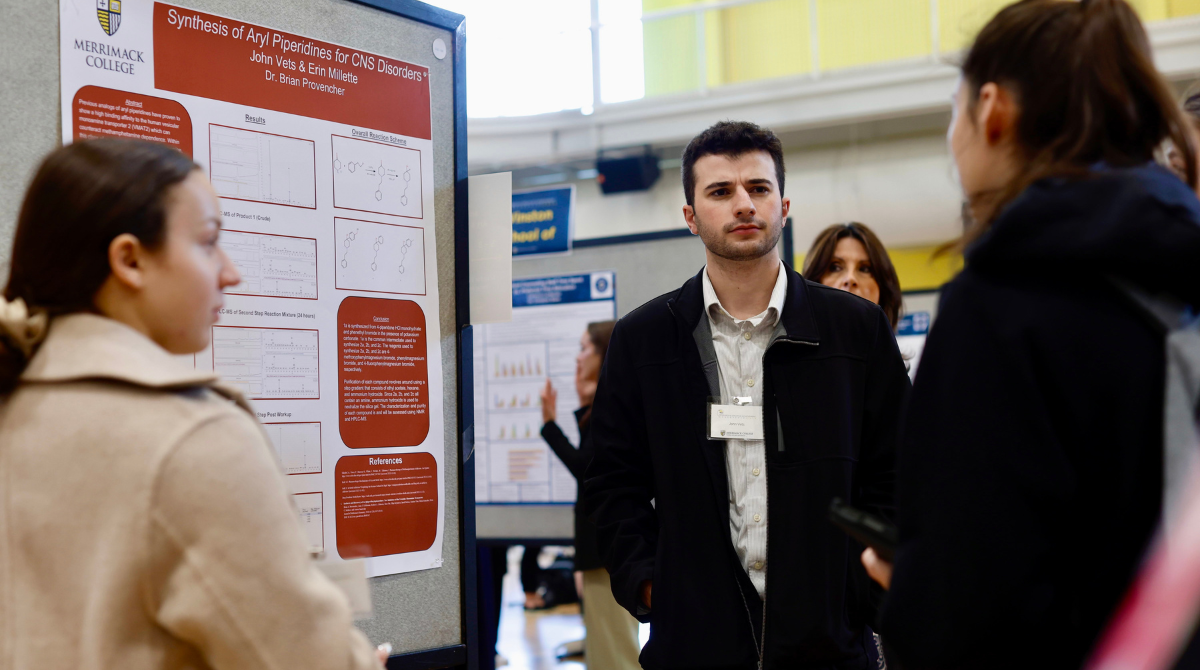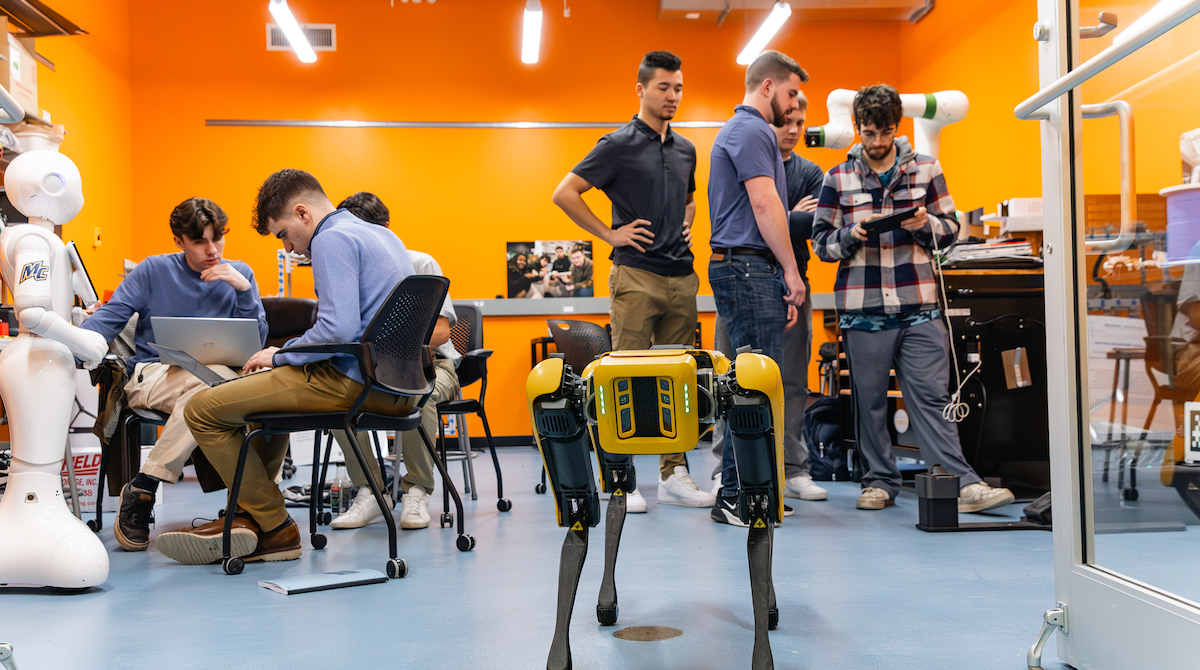Regular exercise and physical activity maintains physical health and wellbeing, but these activities can also help stabilize mental health, lower stress levels and significantly reduce anxiety. Physical activity has been shown to bring about positive mood changes and alleviate acute symptoms of anxiety and depression.
Assistant Professor April Bowling, a principal investigator at Merrimack’s THRIVE Lab, worked with a team of fellow faculty and undergraduate students during the summer of 2021 to build an app that helps young people use exercise to manage anxiety, depression and neurodevelopmental diagnoses.
“There’s no question that physical activity, and particularly exercise that makes you breathe hard and that you do longer than 5-10 minutes, has really significant effects on both mood and emotional regulation,” Bowling says. “The trick is the kids who arguably need it the most – kids with diagnoses like anxiety, depression, ADHD and autism – are the same kids who are the hardest to get to exercise.”
Members of the team’s target population often face barriers like social challenges and executive function inhibitions caused by manifestations of their diagnoses. To reduce certain barriers, Bowling and her team at THRIVE relied on exergaming – video games that require physical activity – to engage kids in exercises that were both socially and physically accessible.
Bowling partnered with Christopher Stuetzle, associate dean in the School of Science and Engineering, to lead the small team of undergraduate students from backgrounds in computer science, graphic design and health science tracks.
Computer science students built the groundwork for a mobile app that enables users to work with coaches, log their exergaming sessions and track their mood and sleep changes over time. Health science students helped to develop a curriculum for those involved in the trial run this summer, working closely with coaches and students in local middle schools and high schools to build effective programming.
“The app is meant to be a unified delivery platform to make it much easier for parents and kids to interact with our intervention,” Bowling said. “What this allows us to do is when they have their coaching sessions, the coaches and youth members can look over their journal logs in real time and see how they’re feeling in relation to what they’ve been doing. In doing this, we can also create this space of positive reinforcement for these kids.”
The app was built under the supervision of Stuetzle by Merrimack students and led by computer science student Kevin Sampson ’22. As the app was put into practice this summer, fellow Merrimack senior Liz Sicard ’22, a health science student, worked closely with users and their families to track the impact of their work. Sicard was also involved in creating content for the apps like exercise video demonstrations and setting up Nintendo Switch games that are already well known as exergames.
“In addition to working behind-the-scenes, I got to go to a high school in Marblehead to work directly with some kids and get direct feedback from our intended population,” Sicard said. “This was one of the reasons I came to Merrimack, to get opportunities like this and find ways to help the surrounding communities. The team was incredible, continuously teaching and giving great feedback for me to take into the professional world.”
Their work this summer was funded by the Sakowich Center for Undergraduate Research and Achievement (SCURCA) and THRIVE Lab now falls under the Center for Health Inclusion Research and Practice (CHIRP), which is a new initiative on campus promoting research, practice and policy that reduce health disparities in local communities.
While the app was in practice this summer with a small cohort of identified potential users, the THRIVE team has bigger plans for its future. Sampson will continue working to make the platform web enabled this fall so that those without access to iOS smartphones will be able to use the resource from a tablet or computer.
“Involvement with SCURCA and the creation of the GamerFit application greatly increased my knowledge of iOS development,” Sampson said. “Through testing many builds, we redefined the user interface and user experience a multitude of times, and it was great being a part of a project aiming to improve physical activity among youth.”
THRIVE is also the recipient of a Deborah Noonan Memorial Research grant to continue and expand testing with GameFit in the community this coming year. Starting in summer 2022, the team will take the refined GameFit App and launch a clinical trial to test the intervention at an even larger scale.
“We wouldn’t have been able to receive the Noonan grant if it weren’t for these first steps under SCURCA,” Bowling said. “It really funded the bones of this project and also allowed our students to do something pretty cutting edge this summer.”




